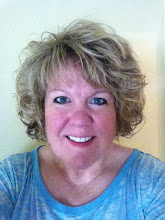I helped at the mock election at Princess daughter's school today. It was fairly sophisticated - they had laptops set up with cardboard boxes placed around them to recreate the feeling of voter booths. I was there to help with the 1st-, 3rd- and 6th-graders, which was eye-opening and quite amusing.
When the 1st-graders came in, the 3rd-grade helpers had to be reminded to read to the voter the ENTIRE list of candidates, not just say "do you want to vote for XXX?" One 12-year-old was extremely disappointed that her vote wouldn't count in the real election. When asked if she needed help, another voter said "I just know I vote Republican all the way down."
Since children often speak what is going in their minds, several enlightened me as to their decision-making process: "I like that name," or "I like the name of the party - reform - that's a good thing," or "I think he's pretty cute," or "I've heard of him," or "I like his signs." Hopefully, adults will take a more informed approach to their decision-making, but you never know...
Perhaps the most interesting part of the election is the two county proposition questions. I had done advance voting, so I was familiar with the language, but even as an adult, had to read them a couple of times to make sure I was voting for what I intended. (Which raises another issue as a communicator - why can't they write these things so the average person can understand???) So I spent a good part of the time with students explaining these two questions, which presents the challenge to not insert my own bias - try it some time, it's a good exercise.
In summary, the first proposition asked if voters were okay with judges continuing to be appointed by a commission or if they wanted to have more say in the process by voting for the judges. The second proposed a sales tax increase that would raise the sales tax in our county to 8% to help fund $15 million for medical research at three local universities.
On that second proposition, one astute 6-th-grader said "Wow, that's a hard decision. I mean, I don't want things to cost more, but it's important to do research and find cures to things." No one could have summed up better the election process - it's all about trade-offs. No decisions are easy, no outcomes are simple, nothing is straightforward. The best we can do is choose the issue that most centrally speaks to us and our values and vote from there. Happy voting on November 4th!
Subscribe to:
Post Comments (Atom)




1 comment:
Here's an interesting tidbit for you: I learned at Harding that someone did research asking seven-year-olds their party affiliations. They later polled the same kids 20 years later, and they overwhelmingly declared membership in the same party they chose when they were seven.
Post a Comment